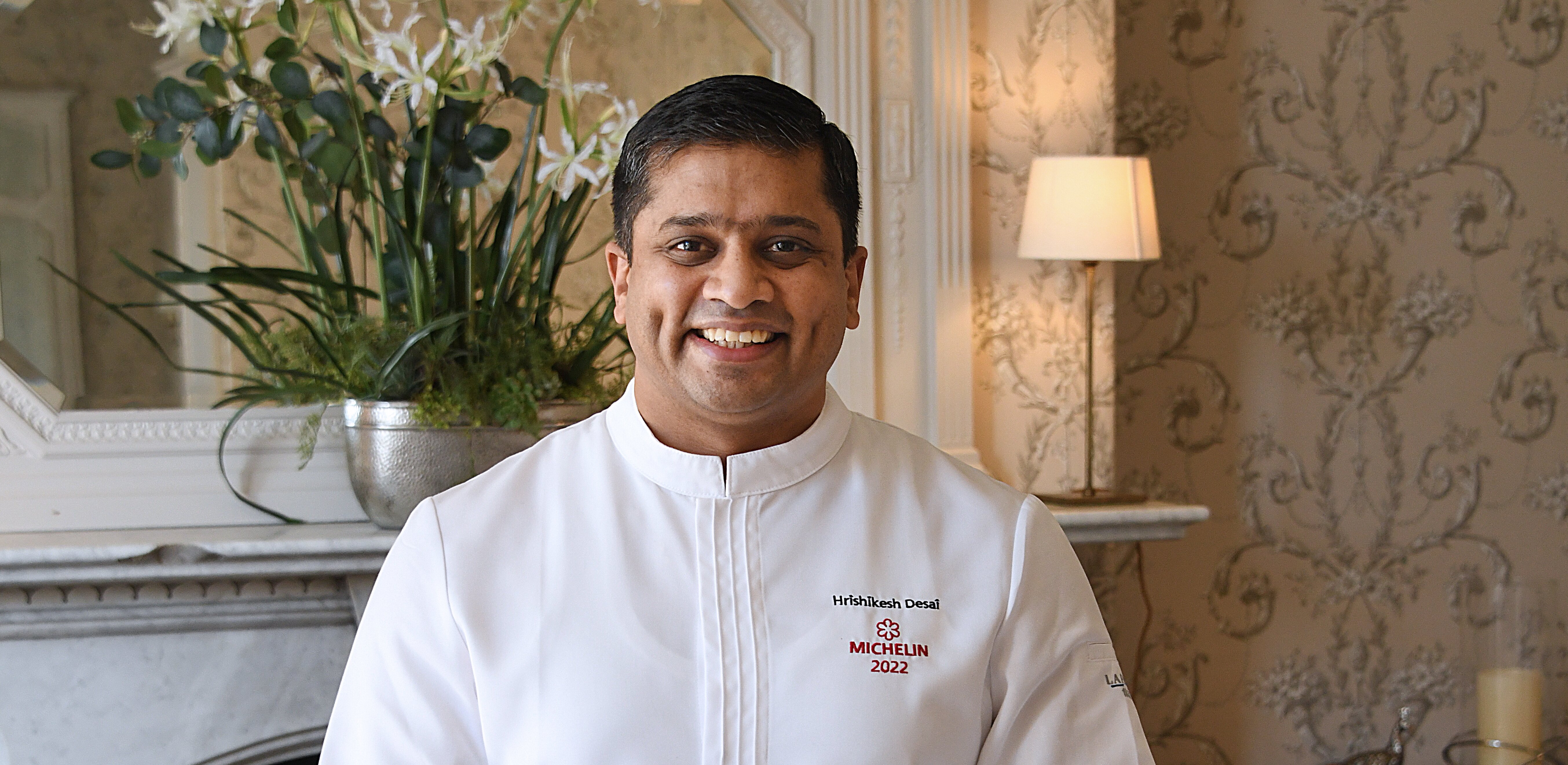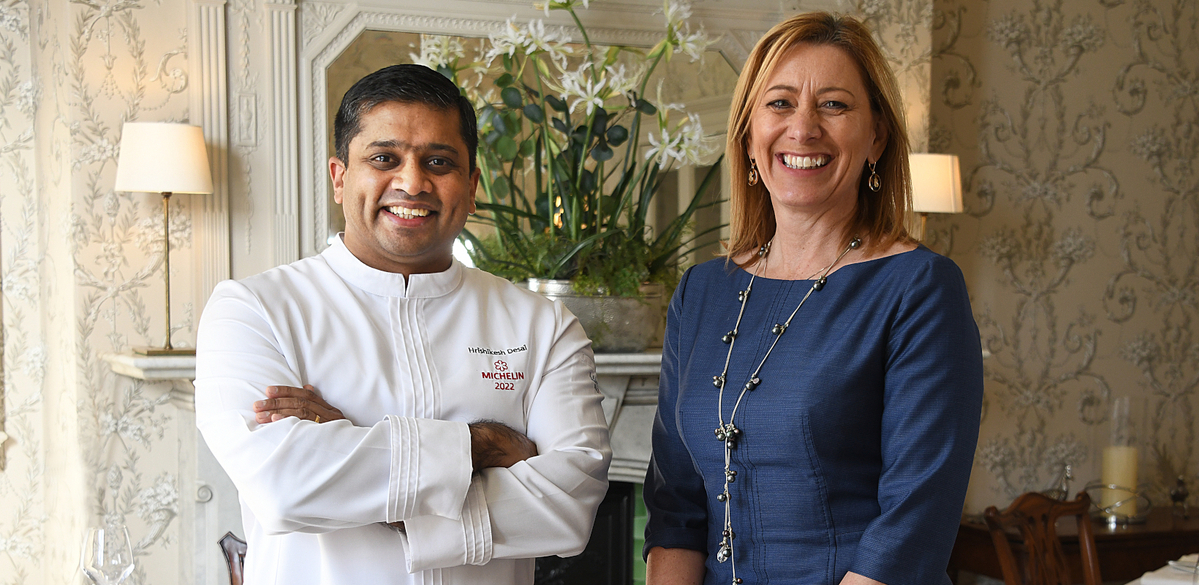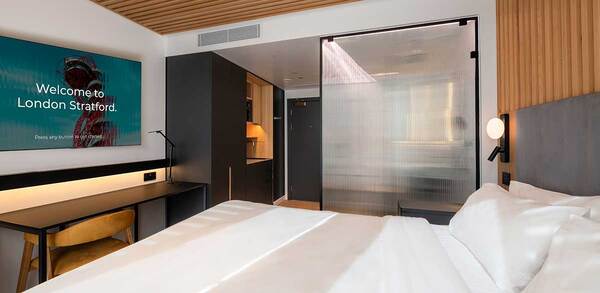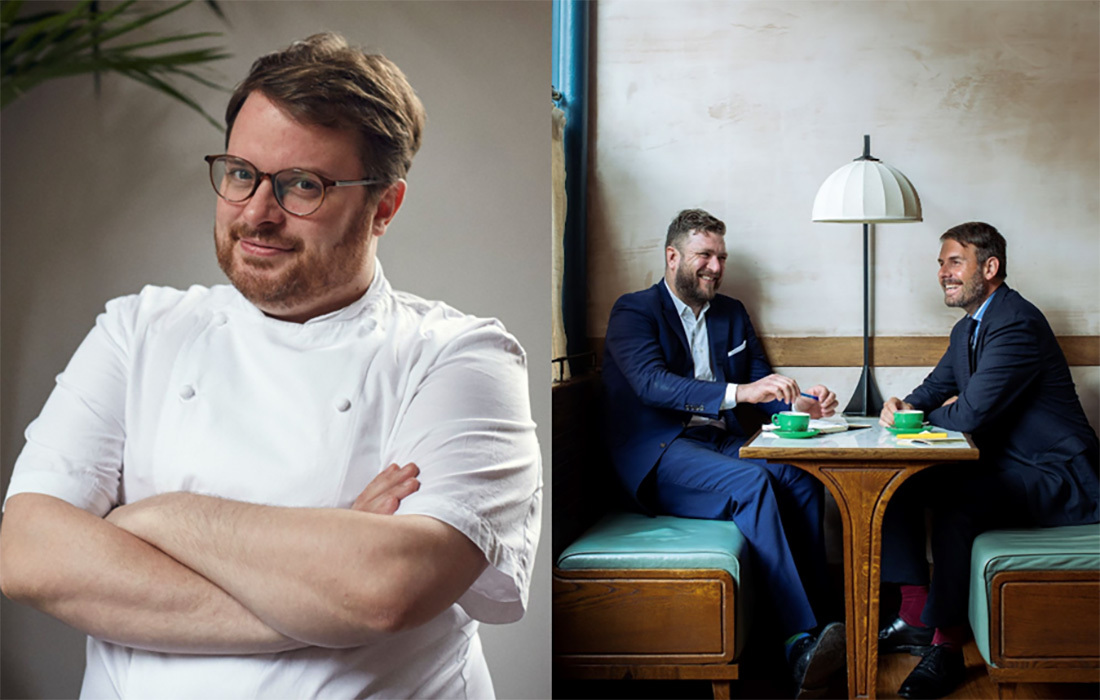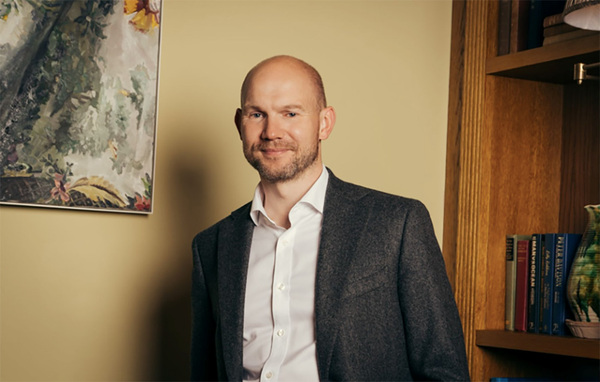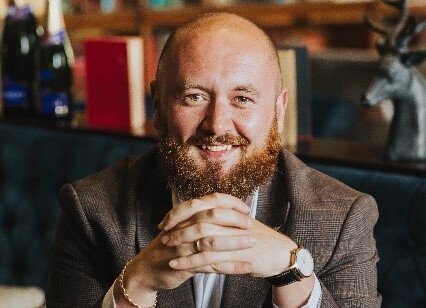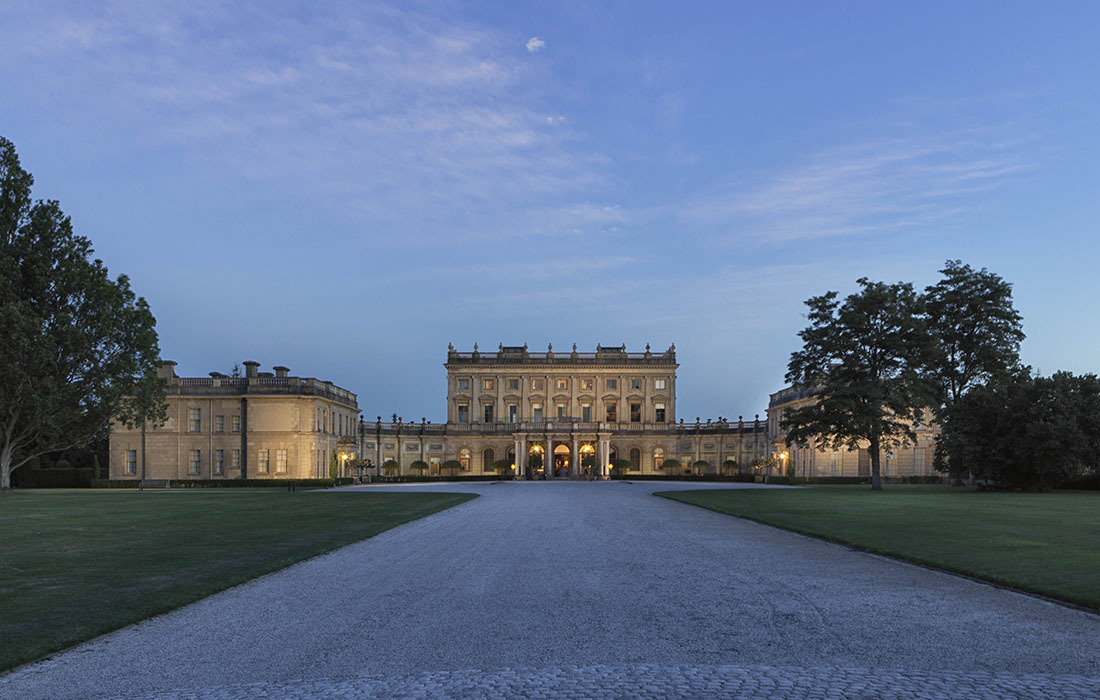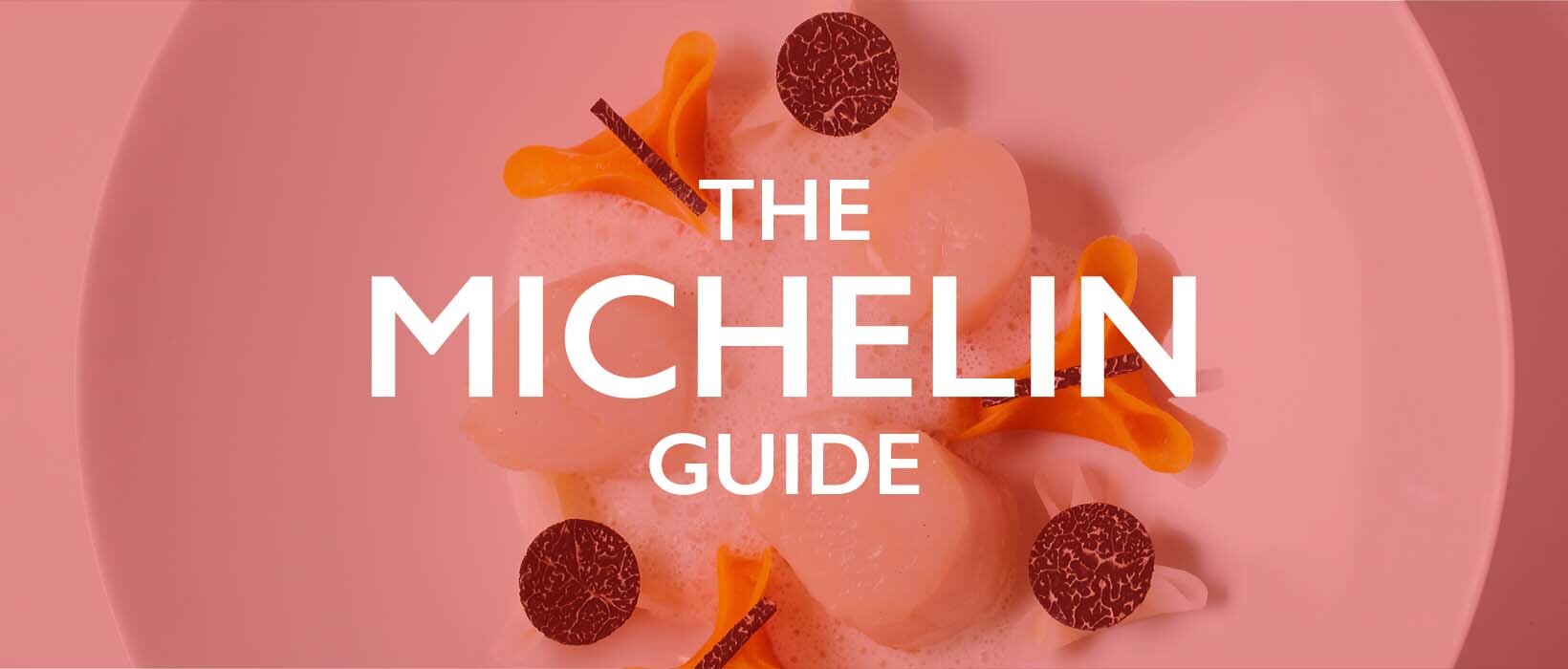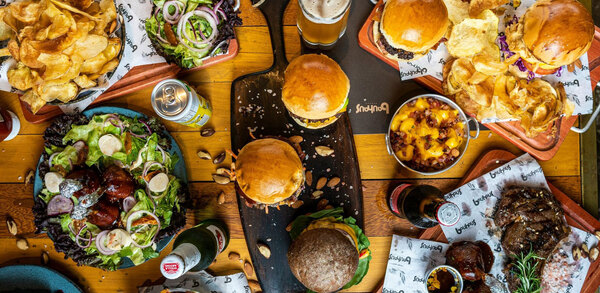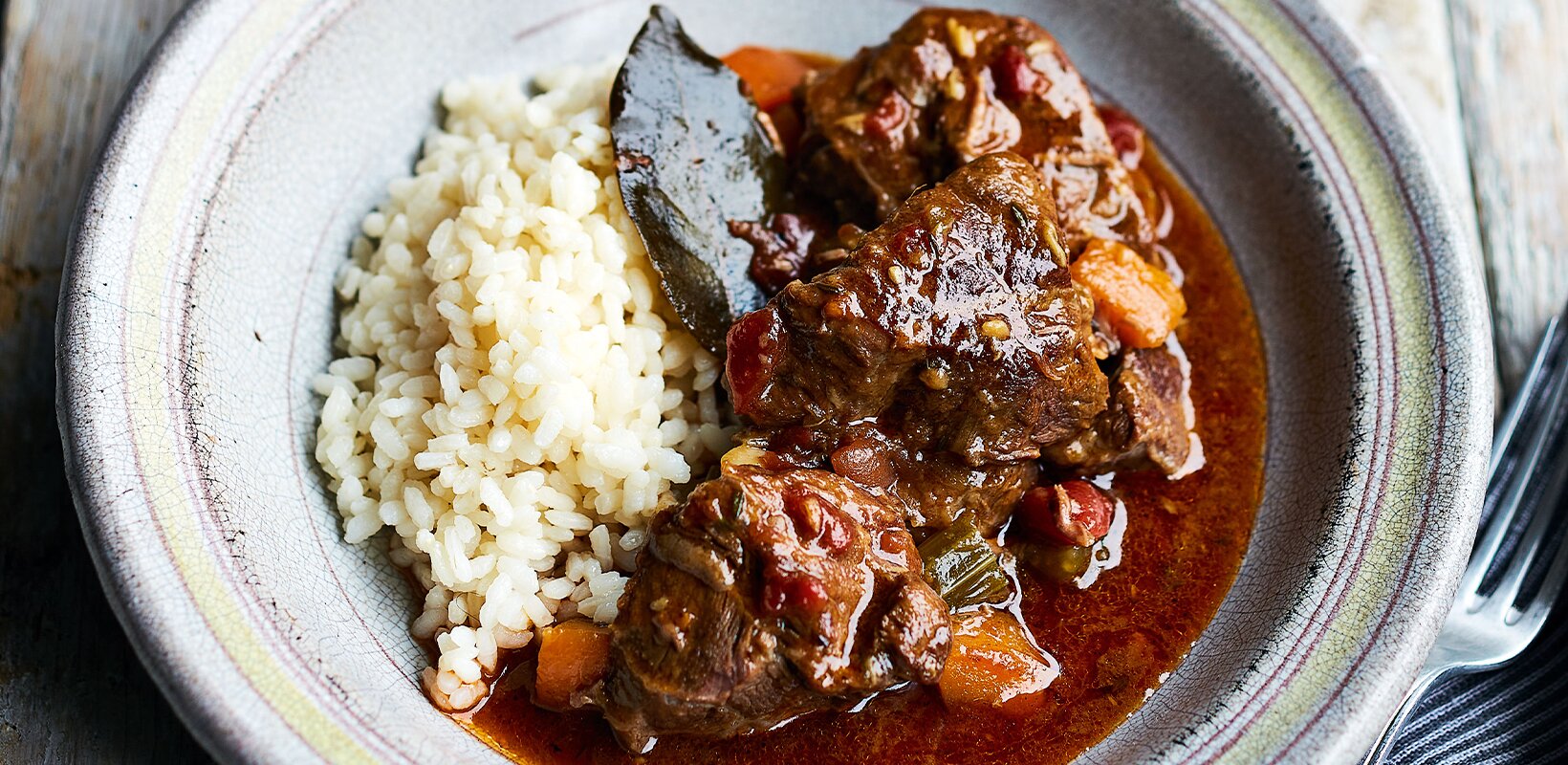Hrishikesh Desai on embracing his role as a hotelier at Farlam Hall
Hrishikesh Desai has grand ambitions in his role as chef-patron of Farlam Hall, including embracing the role of hotelier.
Cumbria has long been associated with outdoor pursuits, attracting tourists from far and wide to hike in the rugged countryside or sail on its beautiful waters. Accordingly, a competitive hotel sector has developed, alongside an equally impressive dining scene, with the county boasting 11 Michelin-starred restaurants, more than any other region outside of London.
As a relatively new hotel on the northern periphery of the Lake District, Farlam Hall, tucked away in the little village of Brampton, is looking to join this star-studded galaxy following the arrival of former Roux scholar and Hotel Catey award winner Hrishikesh Desai.
Chef-patron Desai arrived a mere six months ago but has already implemented vast changes and has a clear vision of how Farlam Hall will stand out in a crowded market. No stranger to elevating hotel restaurants, prior to his move in February, he spent almost eight years overseeing the Gilpin Hotel and Lake House’s three restaurants – Gilpin Spice, Gilpin Grill and HRiSHi – the latter achieving four AA rosettes and a Michelin star within 16 months of opening.
Desai, who won the coveted Roux Scholarship in 2009 aged 29, left his role at Gilpin in December 2022, a year after being named Hotel Chef of the Year (fewer than 250 covers) at the Hotel Cateys. So why, after achieving success at a well-established business, did he move to this less well-trod enclave of Cumbria?
“This gives me the opportunity to work even stronger, to work even harder,” says Desai who admits he deliberated over the decision for a long time. “It was a big risk. I was working for seven-and-a-half years in a place that held a Michelin star for six years and four rosettes, and then all of a sudden to leave that and restart everything takes courage.”
Farlam Hall, part of the luxury hotel brand Relais & Chateaux and a Pride of Britain hotel, is owned by American couple Joe Walters and Kathy Mares, who bought the Victorian property in 2019 and set about restoring and refurbishing its 12 rooms and six cottages into an elegant and luxurious destination retreat. The couple reopened Farlam’s doors in April 2021 and by summer 2022 were looking for someone to strengthen its food and beverage offering. After Zoom calls in September 2022 followed by a three-hour face-to-face interview the following month, Desai was brought into the Farlam fold.
Hrishikesh Desai embraces the hotelier life
The move from overseeing three restaurants with triple the number of hotel guests to one 22-cover dining room might sound like a retrograde step, but Desai says he is putting as much energy into the single pursuit. As an intimate hotel with no spa or on-site activities, Farlam’s Cedar Tree restaurant is central in shaping guests’ experiences and a huge draw in its own right. Ornate plastering, high ceilings and opulent decor are given life by two wide bay windows that overlook a serene view of the 150-year-old cedar tree (after which the restaurant takes its name) and a silver-grey lake.
The manicured, verdant setting is reflected in Desai’s meticulous approach to food. He says his aim is to create food that is “very honest, full of flavour and with a story behind every dish”.
That story begins on Farlam’s doorstep in the half-acre walled kitchen garden, which Desai plans to expand to improve yield and variety. Every inch of the limited space is planted, with vegetables including Swiss chard, carrots, beetroot and spring onion, sprouting alongside seasonal summer fruits such as strawberries and raspberries and herbs, including coriander, rosemary and lavender. Edible flowers are also grown to be used as a refined garnish.
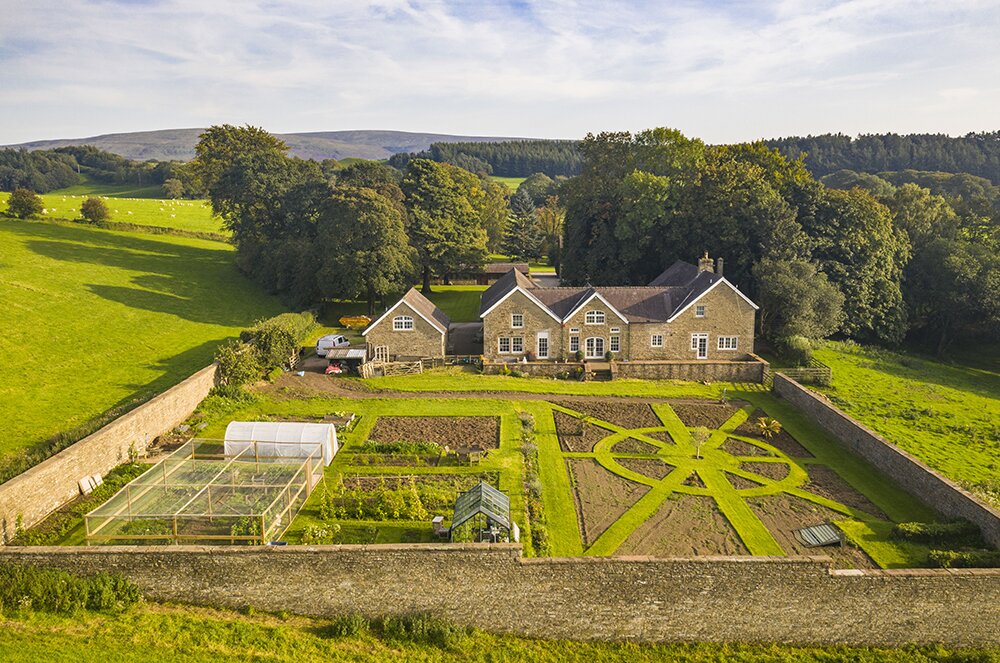
Desai says: “As soon as guests arrive, we want to create a journey and tell them the story behind the produce. We want to evolve the food and menu in such a way that everything that comes from the kitchen is highlighted in our dishes.”
Desai explains that the front of house team are the “storytellers”, a phrase he was eager to incorporate into the language of Farlam: “There is a story everywhere. In every corner and every detail about the hotel, there is a story to share.”
The storytellers are on-hand to explain to guests the provenance of the produce and offer them the chance to see where the food on their plate was planted, nurtured, matured and plucked. What cannot be cultivated at Farlam is sourced nearby. Flour is milled seven miles away at Warwick Bridge Mill, beef is sourced from the county, while other meats come from across the border in Dumfries and Galloway.
In everything from the food to the staff (the hotel has links with nearby Kendall College), Farlam’s roots are firmly embedded in the Cumbrian soil. And from this foundation, Desai has elevated the cuisine from traditional British fare to something familiar yet stimulating. The seven-course tasting menu is priced at £120 per person, including snacks and petits fours. As an Indian-born, French-trained and now British-employed chef, Desai says his menu is “classical French cuisine but with world food and spices”.
A bar snack inspired by olives turns the fruit into a creamy blend, adding cardamom and celery before encasing it in white chocolate. Desai’s hero dish, tandoori beef Wellington (showcased in April on ITV’s Saturday Morning with James Martin), is regularly on the menu. It sees Cumbrian Longhorn beef marinated in Desai’s tandoori mix blend for 24 hours before it is wrapped in a mushroom duxelles, encased in puff pastry and finished with a tandoori jus; a true physical food portrayal of Britain meeting India.
Aware that today’s tastebuds call out for more than just meat, Desai has created a signature cauliflower steak, which he marinates in soya milk, Madras curry powder, turmeric, smoked paprika and lemon salt. The infused cauliflower is then charcoal-roasted and topped with coconut shavings and puffed rice before being served in a generous pool of moilee, a creamy curry sauce.
The hotel was recently shortlisted for ‘best fine dining experience’ at the Cumbrian Life Awards and, while unable to disclose details, Desai shares that he will be able to reveal news of further awards in the autumn.
Decorating the Farlam Hall restaurant
As every chef knows, F&B extends beyond the food. Alongside transforming the menu, Desai’s 100-hour working week sees time dedicated to creating the perfect setting and finding the right accompaniments. He says the first thing he did was to change the restaurant’s table setting. Before, there were no tablecloths and no flower arrangements, but now pristine white cloths are draped over dark wooden tables with flowers from Farlam’s six-acre grounds adding an elegance that matches the dining room’s grandeur.
He also found a local carpenter to make bread and butter boards, napkin rings and snack bowls, the wood for which was felled on Farlam’s land during Storm Desmond in December 2015. He also introduced quintessentially British crockery in the form of Royal Doulton and Wedgewood alongside one of his favourite ranges, Middle Eastern brand Rak. He also changed the glasses to Reidel’s Veloce range.
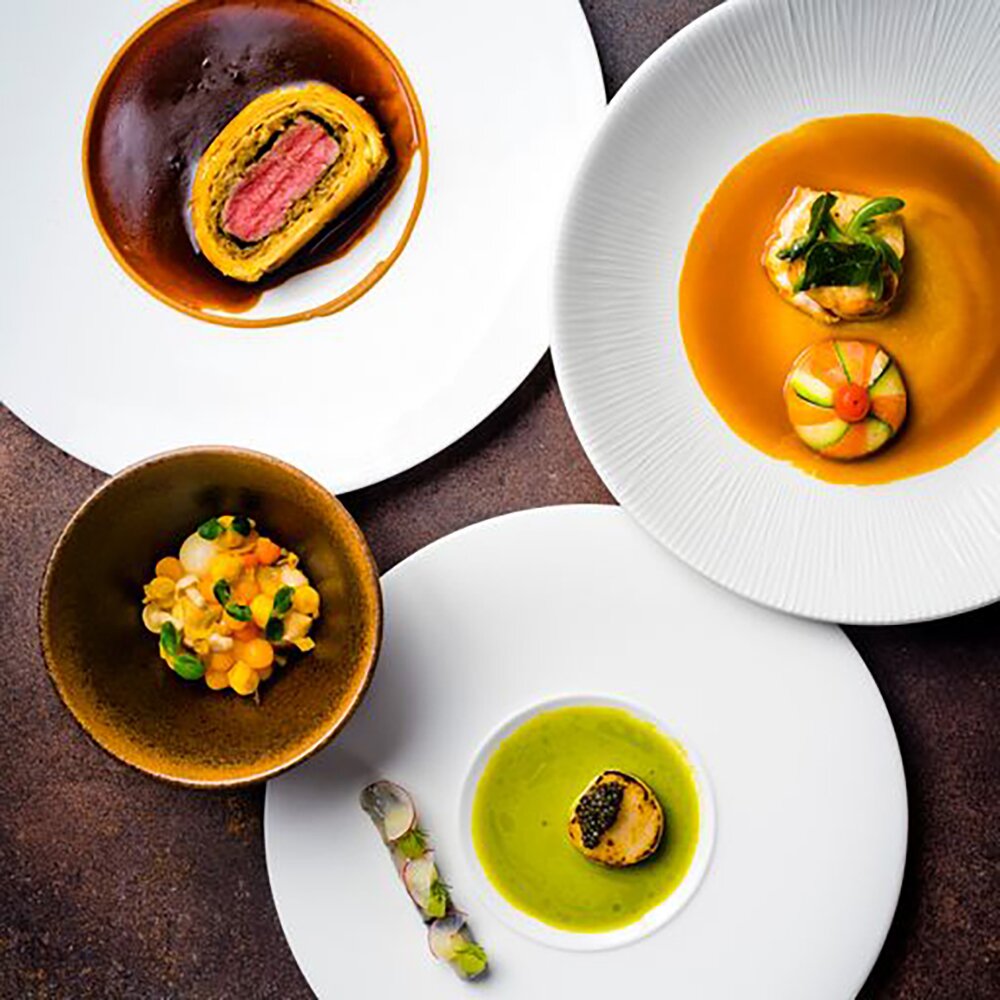
He has plenty of other ideas he wishes to implement, including a carving trolley (“the Ritz London is my huge inspiration for this”), and to reduce sauces in front of guests as meat is carved.
Desai’s devotion to the art of hospitality is largely influenced by his training at French culinary arts school Institut Paul Bocuse and this is what has steered him towards “bring[ing] that refinement back in here,” he says. The chef’s foodie following has already attracted custom to Farlam, where 70% of customers are non-hotel guests.
He adds: “Our focus on F&B is helping us boost our occupancy slowly and steadily. Our goal is to bring Farlam Hall to around a 75% occupancy level.”
'To be a hotelier, you have to understand people'
It is clear what Desai gives Farlam, but what does Farlam give Desai? “I can be me and I can express myself as much as possible”, he explains. While this is seen in the direction he is taking the Cedar Tree, Desai’s move to Farlam is also part of a wider, less well-known ambition.
“The challenge here is not just about how to make the business work; the challenge is how I can be a good hotelier,” he says.
Desai’s relationship with the owners gives him a voice and opportunity to implement changes beyond the kitchen to enhance the guest experience. Walter and Mares have bimonthly, check-in Zoom conversations with Desai, but he says they are happy for him to steer much of the strategic direction of the business.
And their trust is well placed. Since Desai’s arrival and the changes he has been instrumental in implementing, turnover from Q1 to Q2 this financial year has increased by 323%. Desai also says that revenue for Q2 is 22% higher than the same quarter last year.
“To be a hotelier, you have to understand people,” he explains, adding that he believes there is no set formula to hotel management, rather it is about recognising humans needs and wants and servicing those.
He takes the case of in-room amenities. In an ongoing bid to cut down on plastic waste, along with the owners, Desai was part of the decision to dispense Molton Brown products from porcelain decanters, topped with wood stoppers. If Farlam had a signature scent, it would be the aroma of lavender that peppers the air. Desai uses the herb in his lavender shortbread (see panel), which is served as part of afternoon tea and will soon be used in the in-room oils and as a pillowcase spray. He also has designs to offer biodegradable water bottles as a take-home gift, along with protein bars.
Looking to his future and whether he would take a financial interest, he says: “If there is a stake, that would be absolutely brilliant but, at this stage it is about how we make it thrive.” He believes it will take “at least 10 to 12 years, easily,” to learn the art of hotel management.
In the meantime he has much to keep him busy. He adds: “We do have Michelin ambitions. I would like us to be included in the Michelin Guide, but whether we will get that star or not, I don’t know. It’s up to Michelin to decide, so we will just have to wait and see.
“I’m just trying to express myself,” he shrugs. “It’s me unleashed.”
Hrishikesh Desai's CV
February 2023-present
Chef patron, Farlam Hall hotel, Brampton, Cumbria
March 2015-December 2022
Executive head chef/food and beverage manager, Gilpin Hotel & Lake House, Windermere, Lake District, Cumbria
July 2004-March 2015
Various head chef roles at Lucknam Park hotel, Wiltshire, including of the Cookery School, of the Brasserie and at Restaurant Hywel Jones
April 2003-June 2004
Demi-chef de partie, the Burford Bridge hotel, Surrey
March 2002-March 2003
Commis chef, Les Maison de Bricourt, Brittanny, France
Lavender shortbread recipe
- 340g plain flour
- 225g unsalted butter, diced very small
- 120g fine caster sugar
- 20g dried lavender or fresh lavender
- Fine caster sugar for sprinkling
Pre-heat a fan oven to 160ºC.
Blend the flour, butter, sugar and lavender in a mixing bowl or on a cold surface area until a dough is formed. Cover with a cling wrap and rest the dough in the fridge for 15 minutes.
On a lightly floured surface roll the dough to approximately 1cm thickness using a rolling pin.
Using a roller docker, prick the dough.
Use a round cookie cutter to cut 12 pieces (you can bring the trimmings of the dough back together and make more, but this will have a different texture as the dough is now overworked).
Arrange the cut pieces on a baking tray lined with greaseproof paper or a silicone sheet and place in the oven for 8-12 minutes. The shortbread will rise in the centre but do not colour.
Remove from the oven and sprinkle caster sugar over the shortbread with a tea strainer while it is still hot so that the sugar sticks to the shortbread.
Allow to cool and enjoy.


